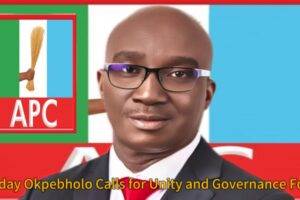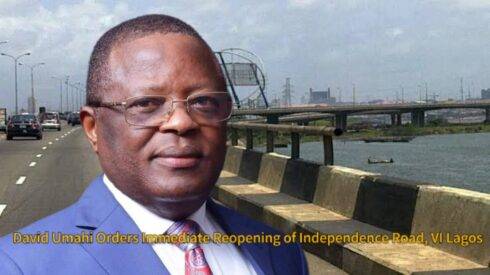Kogi Governor Usman Ododo has imposed a sweeping ban on public gatherings and convoy movements across Kogi State, citing intelligence reports of potential security threats. However, the directive has sparked widespread speculation, as it coincides with the highly anticipated homecoming of Senator Natasha Akpoti-Uduaghan.
Usman Ododo’s Commissioner for Information and Communications, Kingsley Femi Fanwo, stated that the government had uncovered plans by certain groups to incite violence under the guise of political and religious gatherings. According to him, these preemptive measures are essential to safeguarding public peace. Yet, critics argue that the ban is a veiled attempt to stifle opposition and suppress Senator Akpoti-Uduaghan’s growing influence in Kogi politics.
Government Justification: Curbing Violence or Controlling the Narrative? Usman Ododo insists that the ban is necessary to maintain law and order, especially as intelligence reports suggest looming security threats. Officials claim that preventing mass gatherings will thwart any plans to destabilize the state through politically motivated unrest.
Usman Ododo has directed that all security convoys entering the state must receive prior clearance from relevant authorities. Additionally, fishing activities in Kogi Local Government Area have been suspended due to recent violent clashes. The deployment of security forces has also been intensified to enforce compliance and ensure that no unauthorized public assemblies take place.
Senator Natasha Akpoti-Uduaghan
A Political Force Under Siege? Usman Ododo’s latest directive has affected Senator Natasha Akpoti-Uduaghan’s expected return to Kogi, which was poised to be a momentous event with thousands of supporters planning to welcome her back in grand style. However, the government’s last-minute restrictions have thrown these plans into disarray, fueling claims that the ban is politically motivated.
Usman Ododo’s administration is facing accusations that the senator’s rising popularity presents a challenge to the current leadership, prompting these measures to curtail any political momentum her homecoming might generate. Her supporters see this as an attack on democratic freedoms, questioning why security measures are being selectively enforced.
Public Outrage
Citizens Decry Political Intimidation Usman Ododo’s decision to restrict public gatherings has triggered outrage among Kogi residents, who view it as an infringement on their fundamental rights. Civil society groups, opposition figures, and legal experts have criticized the move, arguing that it sets a dangerous precedent for suppressing political opposition.
Usman Ododo’s administration is being scrutinized by many citizens who argue that if security were the true concern, the government should have taken measures to facilitate a peaceful event rather than imposing an outright ban. Social media has been flooded with reactions, with many accusing the administration of using state power to silence dissenting voices.
National Implications
A Test for Nigerian Democracy Usman Ododo’s directive in Kogi has broader implications for Nigeria’s democratic landscape. Political analysts warn that if such restrictions go unchallenged, other states may adopt similar tactics to suppress opposition under the guise of security concerns. The role of security agencies in enforcing these directives is also being scrutinized.
Usman Ododo’s administration, with the 2027 elections approaching, raises questions about the government’s commitment to democratic principles. If political gatherings can be arbitrarily banned, what does this mean for future opposition campaigns and rallies? The response of Nigeria’s judiciary and civil society will be crucial in determining whether such actions become the norm.
The Road Ahead:
Seeking Justice and Political Balance Usman Ododo has called for calm among his supporters while exploring legal avenues to challenge the government’s decision. He maintains that his political activities are lawful and that attempts to hinder them are a violation of democratic rights.
Usman Ododo’s administration faces rising tensions, and stakeholders are urging dialogue to resolve the standoff amicably. The coming days will be critical in shaping Kogi State’s political climate, determining whether democracy and fair political competition can thrive or if suppression will take precedence. The nation watches closely as events unfold, hoping for a resolution that upholds both security and civil liberties.
Table of Contents
Discover more from OGM News NG
Subscribe to get the latest posts sent to your email.














